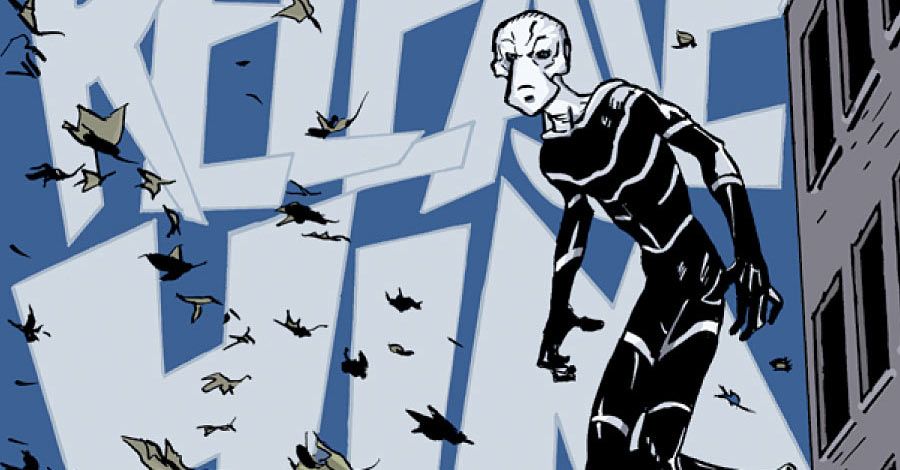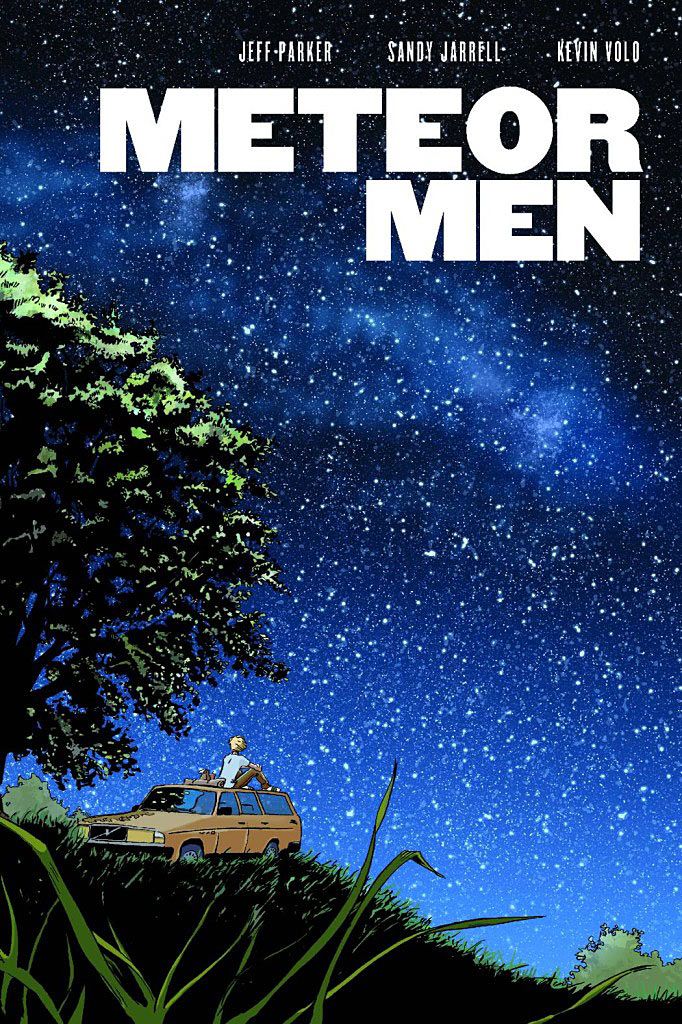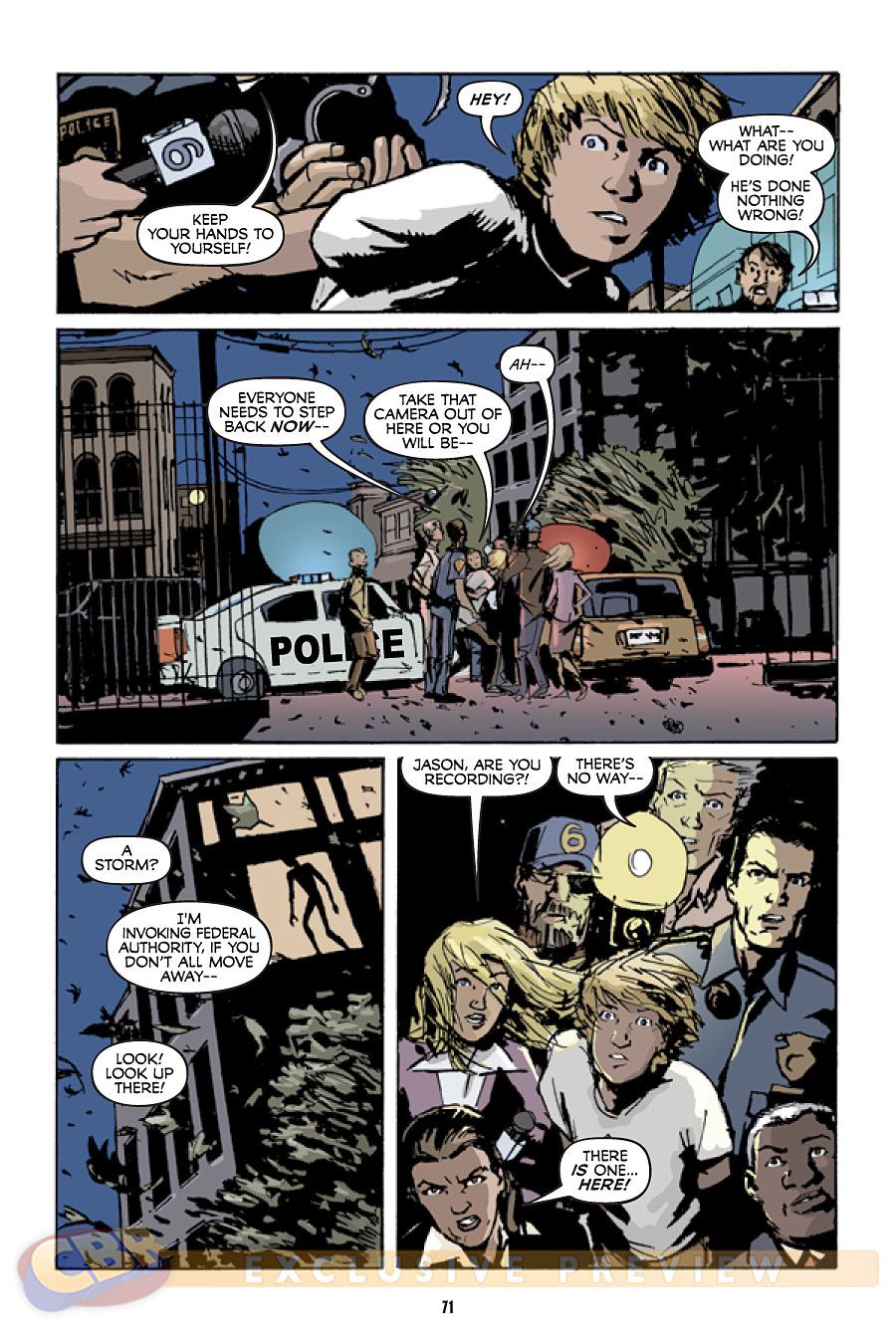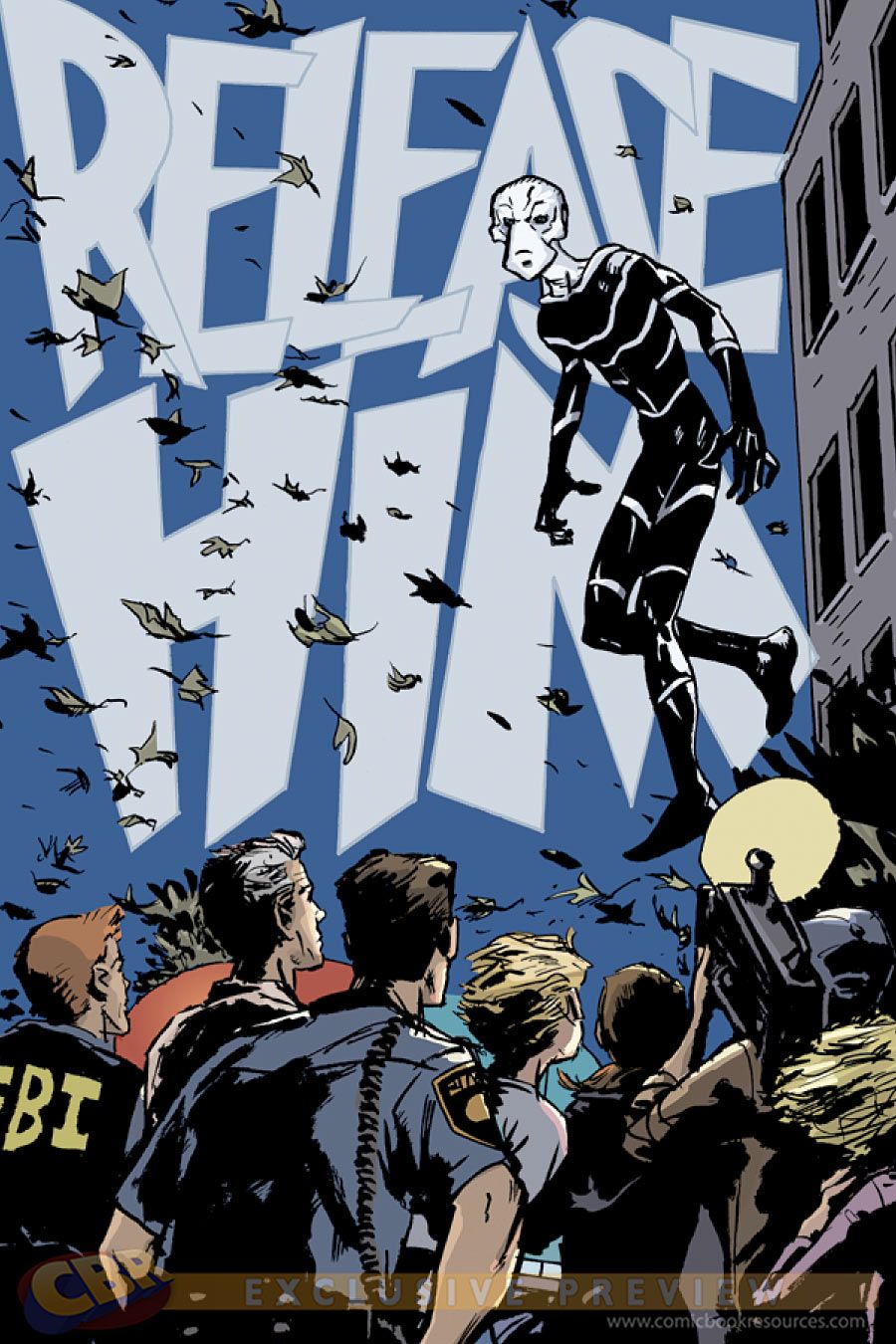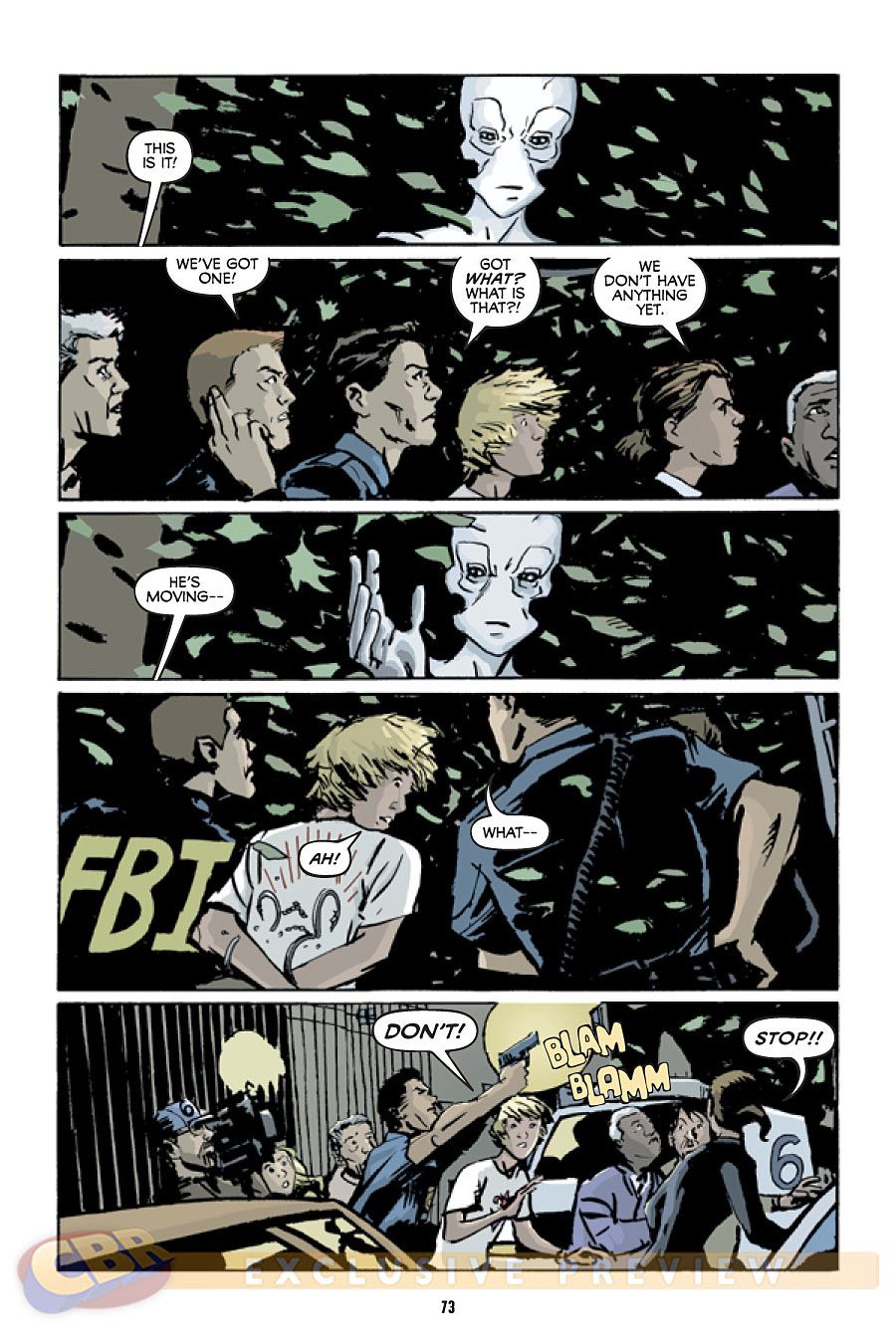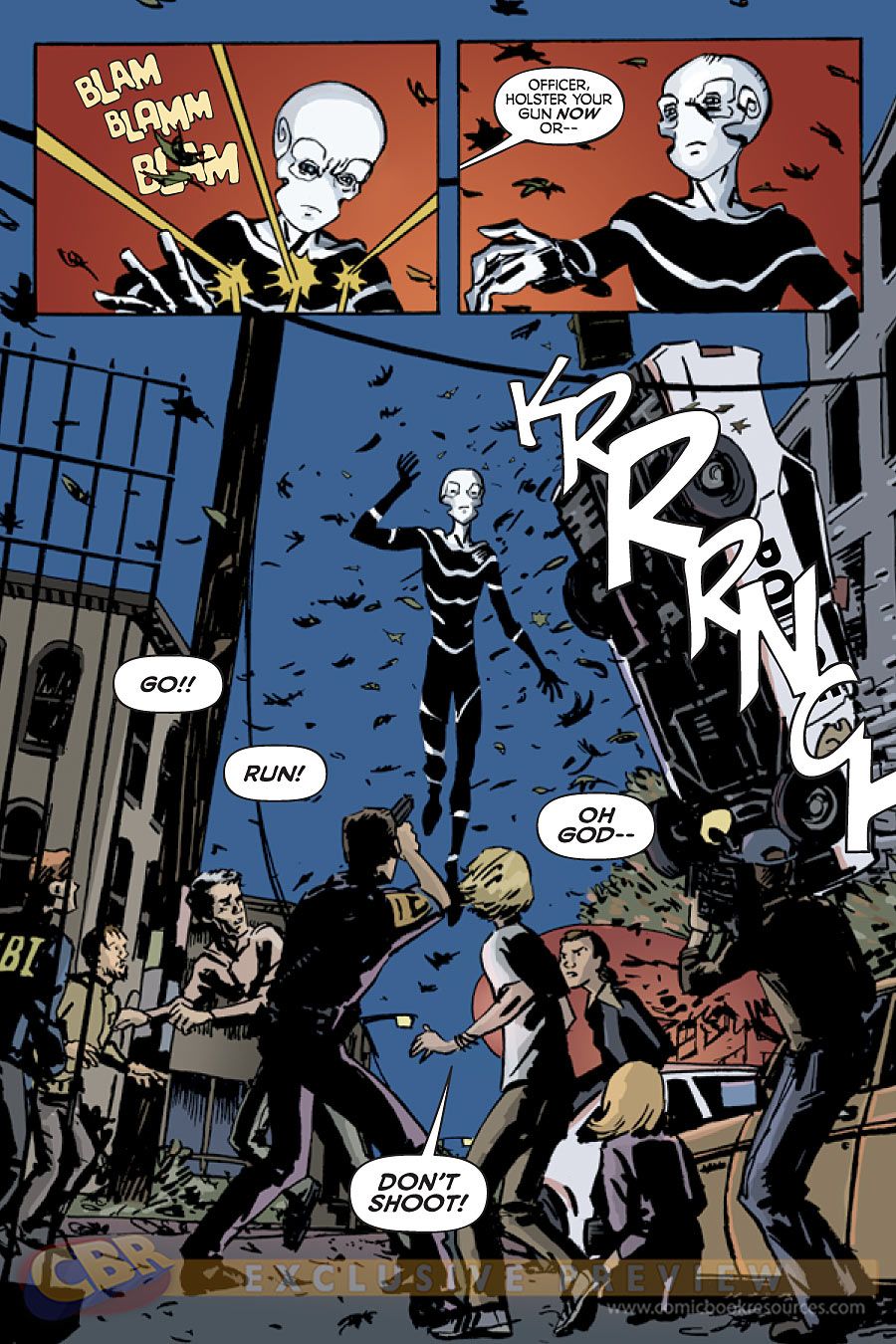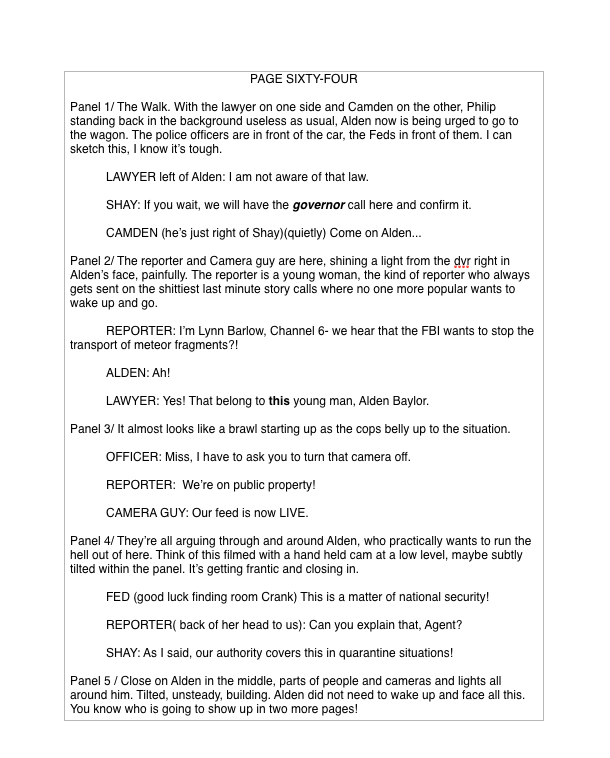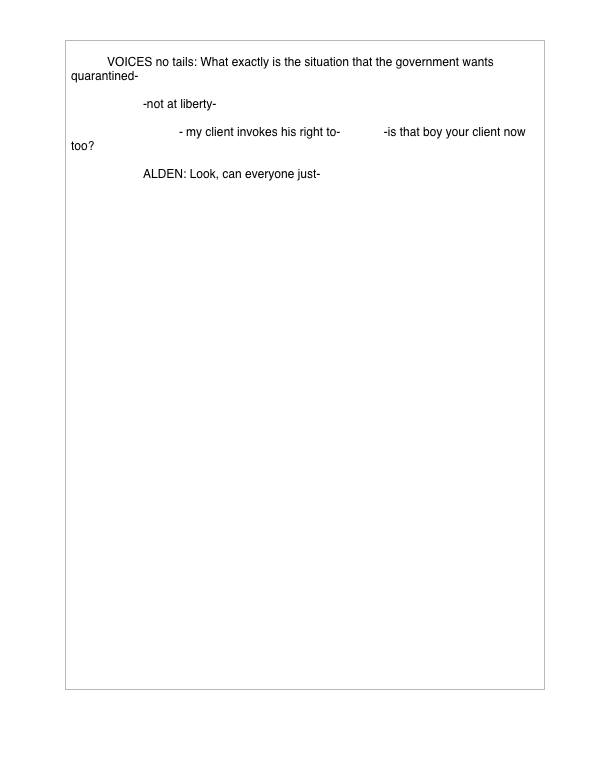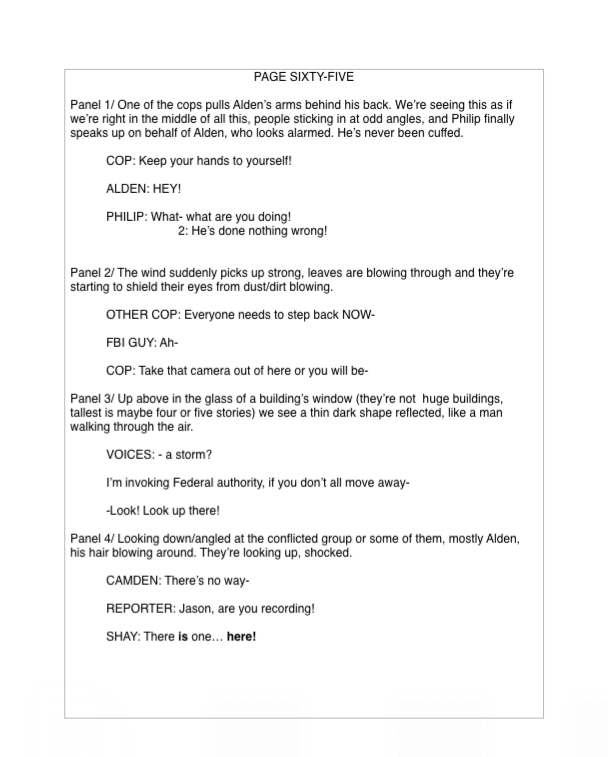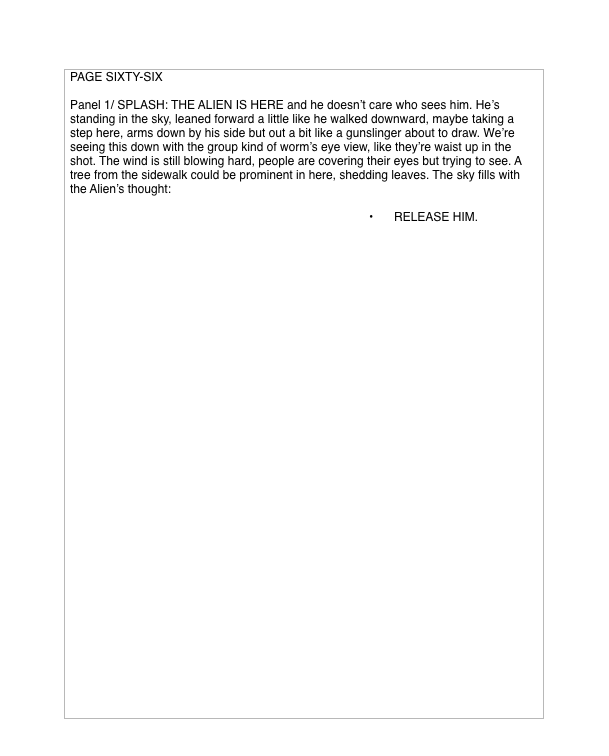By exploring the depths of the DC Universe in "Aquaman," going retro in "Batman '66," bringing adventurer "Flash Gordon" to Mongo or bridging the gap between video games and comics with IDW's upcoming "Angry Birds" series, writer Jeff Parker is currently examining a wide swath of genres and themes in comics. But while his current workload is focused on well-known characters, he's not content to stop creating original characters and worlds of his own -- or destroying them.
RELATED: Parker Infuses "Aquaman" with Wonder Woman, "True Detective"
In the original graphic novel "Meteor Men" from Oni Press, Parker and artist Sandy Jarrell sketch out the end of humanity at the hands of alien invaders. Rocks fall from the heavens, aliens emerge from the meteors and extraterrestrials start eliminating life as we know it. Or, most of it. Teenage protagonist Alden Baylor has an unexplained connection to the aliens, and on the eve of humanity's extinction he seems to be the only living human the invaders don't want dead.
CBR News spoke with Parker about how the OGN sounds like but isn't actually a B-movie, why aliens will lead to the end of the world, what drew him to Jarrell and much more.
CBR News: What's the overview of "Meteor Men"?
Jeff Parker: Well, it's about the end of mankind, but all seen through the eyes of a 16 year-old. His name is Alden Baylor and he's kind of pivotal. He seems to have a connection to one of these aliens that have been landing on the planet. The title is chosen to sound like a classic B-movie invasion story, but as you get into it you realize that it's nothing like that. It's me trying to imagine how the end of humanity would come about if another species were to try to move into our ecological niche. They're not scheming in flying saucers, but they are arriving kicking us out. Everyone starts to hope that Alden is maybe the key to working this out because one of the aliens, for whatever reason, is protective of him.
How would you describe Alden? Is he an everyman? An everykid?
He's a very quiet kid. I write loudmouth characters a lot. I chose everything about the story to be different [from what I usually do]. He's very introspective and lost both of his parents three or four years before to a drunk driver. He's had to grow up and take in a lot of things that you should never have to do in your teenage years. His Uncle Philip is living with him, and he's a great guy, but he never planned to have kids so it's not natural to him. Alden has had to figure out everything for himself.
You see him at the beginning and he's sixteen, so he can drive now. He's got a part-time job at a gas station, and when the story begins he's [inviting a lot of people to his family's land] to see the Perseid meteor shower. The property used to be farm and pasture, but now it's just fallow. His uncle dates someone in the local university's astronomy department, so it's become a ritual where they invite everybody to come out -- and watch the meteor shower.
That's where it all begins. People are asking, "who owns this place, anyway?" And then we see Alden on top of his station wagon watching the stars. That's when the event, the biggest meteor saturation ever, happens.
RELATED: Parker Launches "Angry Birds" into Comics
Invasion and apocalypse stories invite metaphor. Aliens or catastrophes can be metaphors for climate change, for communism, for nuclear war, for Nazis, etc. Is there any specific parallel or allegory that you're going for?
There are a couple. This is another thing I was hoping to achieve. I do a lot of superhero work, and editors lean on me to make very clear about what the message is to take away. That's understandable when working with a licensed character. They don't want it to be ambiguous -- they want everyone to know exactly what they're getting. With this I'm trying to make a huge attempt to let people figure it out for themselves. I think I'm pretty clear with some of the metaphors in the book, but I don't want to tell the reader what to think. I want to see it come out and see how people interpret what Alden does and what they take away from it.
People may see something totally different in it and I may see something ugly about my psychology that I never realized.
What's the biggest difference between something original like this and writing licensed characters?
Well, I'm hoping that the audience is coming in because they've heard of me or artist Sandy Jarrell before, or because they find the premise interesting. I'm hope that they don't expect this to be "Independence Day" with a bunch of shooting flying saucers or anything. I'm hoping that they're going to let me do something different. I did "Underground" a couple of years ago, and I always try to do something that I'd never get hired for -- I force myself to grow.
Regarding other sci-fi alien stories, was there anything that was particularly influential? Is there anything you're reacting against?
You can't get away from Spielberg's efforts, with "Close Encounters" being the better one. With comics, Sandy and I are big Alex Toth fans and there's a story called "Daddy and the Pi" -- I think that story lurks back there for both of us. Also a lot of good YA stuff. You can strip the sci-fi out of that and a lot of it is just the story of a teenager.
RELATED: "Underground": From Bootleg to Breakout
Let's talk about that aspect of it. In sci-fi the encounter with the other can also be used as an encounter with becoming an adult. Is there any of that?
Oh yeah. You see some parallels in how he interacts with people. He meets a girl he's interested in, he goes to a party, and [the reader] is considering it all against the backdrop of what's been happening. Meteors have been falling and cracking open, aliens have been emerging from them -- but then you're getting stuff that you should be able to relate to in your own life.
What's your working relationship with penciller Sandy Jarrell like? How instructional or loose are you when scripting a scene?
I was pretty fluid about it, only really being anal when there was a particular point to be made when talking about mood or emotion. Usually I write a whole script, but because it was a graphic novel I only had so much time just gave him a few pages at a time. I did that with Steve Lieber on "Underground" and Erika Moen on Bucko, and I liked how that gave a page-turner quality to [the book]. I was thinking "I need to leave myself set-up for when I get back to this..." I wouldn't want to do everything like that, but to do it once in a while is pretty useful. I wouldn't do it, though, if I hadn't also written hundreds of comics stories before, and was fairly confident that you can land the plane. I wouldn't want to get myself in any trouble.
How much input did Jarrell have with plot and characterization?
I tried to give him a lot, but he didn't want to write -- he [did] a lot with the incidental characters. I love when artists do that. It breathes life into it. If they don't see the world, then no one else is going to see it. They have to have a very clear vision in their heads. He didn't want to make up plot, but if he felt like something wasn't going the way that he thought it would, he'd tell me and I'd almost always change it. As long as I get to the point that I eventually want to get to, I don't care if that happens. You want it to read real. You don't want plot pushing characters, you want the characters to act the way that they act.
This is a stand-alone graphic novel. You've done a lot of superhero work which, necessarily, has to continue. What's it like to be able to write a third act?
Yeah, it can't continue. I don't want to spoil anything, but it has to end the way that it ends. [I get to write endings] as part of a small miniseries or of arcs that I'm doing within a series, but not in a big sweeping way like this. With monthly work I have to be very attuned to the fact that something can change, that artists can drop out, or that some line-wide event is happening that I need to tie into. I need to be very Zen about those things. This, though, really gives me the classic novel or screenplay [structure] that I can dive into.
"Meteor Men" goes on sale in September from Oni Press.

